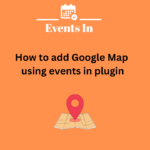Introduction
Businesses and individuals alike are continuously seeking innovative and user-friendly solutions for their online presence in the ever-changing digital landscape. “Does WordPress have a calendar feature?” is a frequently asked topic in this context. This query is not merely a curiosity but a crucial consideration for those who want to efficiently manage events, schedules, and appointments on their websites. In this comprehensive guide, we delve into the diverse facets of WordPress calendar feature, showcasing their versatility and the myriad benefits they offer.
Exploring WordPress Calendar Functionality
Understanding WordPress Calendar Plugins
One of the key strengths of WordPress lies in its extensive library of plugins. When it comes to calendars, the platform boasts a plethora of calendar plugins that cater to various needs. From simple event displays to complex scheduling systems, these plugins empower users to customize their calendars according to their specific requirements. Popular options include Events In WP
Built-in Calendar Features in WordPress
Beyond plugins, WordPress itself provides intrinsic calendar functionalities. While not as elaborate as dedicated plugins, these built-in features can be instrumental for users seeking basic calendar capabilities. The core platform allows users to assign dates to posts, making it an effective tool for organizing content chronologically. Additionally, WordPress enables the creation of custom post types, facilitating the development of unique event-centric pages.
Setting Up a WordPress Calendar
Installation of Calendar Plugins
To harness the full potential of WordPress calendar features, installing a dedicated plugin is often the preferred route. The process is remarkably straightforward. Navigate to the Plugins section in your WordPress dashboard, click on Add New, and search for your chosen calendar plugin. Once installed, activate the plugin to unlock a myriad of customizable options.
Configuration and Customization
Upon activation, the chosen Calendar Plugin typically provides a settings panel where users can configure various aspects of their calendar. This includes selecting date formats, specifying time zones, and customizing the appearance of the calendar itself. Users can also define event categories, set recurring events, and integrate additional features such as RSVP functionality.
Maximizing the Benefits of WordPress Calendar
Enhanced User Engagement
A WordPress calendar is not merely a static tool; it is a dynamic element that enhances user engagement. By displaying upcoming events, workshops, or product launches, you create a sense of anticipation among your audience. This proactive approach encourages repeat visits and fosters a community around your website.
Optimizing for SEO
In the realm of online visibility, Search Engine Optimization (SEO) plays a pivotal role. WordPress calendars contribute significantly to SEO efforts by providing regularly updated content. Each new event or update becomes a fresh piece of content for search engines to index, thereby improving the overall SEO performance of your website.
Addressing Common Concerns
Mobile Responsiveness
With an increasing number of users accessing websites via mobile devices, ensuring mobile responsiveness is paramount. Fortunately, many WordPress calendar plugins are designed with this in mind, offering seamless integration with mobile platforms. This guarantees that your events and schedules remain accessible and visually appealing across a diverse range of devices.
Compatibility with Themes
A common concern when integrating new features is the compatibility with existing themes. Rest assured, most reputable calendar plugins are designed to seamlessly integrate with a wide array of WordPress themes. This ensures a harmonious blend of functionality and aesthetics.
Leveraging Advanced Calendar Plugin Functionalities
Integrated Booking Systems
For those in the service industry or organizing events requiring reservations, consider a WordPress calendar plugin with integrated booking systems. This powerful feature allows visitors to not only view upcoming events but also secure their spot through a streamlined booking process. This not only enhances user experience but also streamlines your event management workflow.
Social Media Integration
In the era of social connectivity, extending the reach of your events is crucial. Opt for a calendar plugin that seamlessly integrates with social media platforms. This feature enables automatic sharing of upcoming events on various social channels, amplifying their visibility and drawing in a wider audience.
Advanced Customization Techniques
CSS Customization
While many calendar plugins offer pre-designed templates, take your website’s aesthetics to the next level by delving into CSS customization. This advanced technique allows you to fine-tune the visual aspects of your calendar, ensuring it seamlessly aligns with your overall website design.
Multilingual Support
In a globally connected world, catering to a diverse audience is essential. Choose a calendar plugin that supports multilingual functionality. This ensures that users from different linguistic backgrounds can easily navigate and engage with your events, expanding your website’s reach.
Monetizing Your Events
Ticket Sales Integration
For businesses hosting paid events, monetize your calendar by integrating ticket sales functionality. Select plugins that seamlessly facilitate ticket transactions, offering a secure and user-friendly platform for attendees to purchase tickets directly from your website.
Sponsorship Opportunities
Transform your events into lucrative opportunities by incorporating sponsorship features. Certain calendar plugins allow you to showcase sponsors for each event, providing them with visibility and exposure. This not only enhances the professionalism of your events but also opens avenues for additional revenue streams.
Troubleshooting and Optimization
Performance Optimization
As your website grows, optimizing performance becomes paramount. Periodically review your calendar setup and ensure it doesn’t adversely impact your site’s speed. Opt for plugins with efficient coding practices and regularly update them to access the latest performance improvements.
Addressing Common Compatibility Issues
In a constantly evolving digital landscape, ensuring compatibility with the latest WordPress updates and other plugins is crucial. Regularly check for updates from your chosen calendar plugin’s developer and promptly apply them to prevent compatibility issues.
Final Thoughts
In the dynamic world of online presence, a well-utilized WordPress calendar can be a game-changer. By harnessing advanced functionalities, customizing the user experience, and optimizing for performance, you not only provide valuable information to your audience but also elevate the overall engagement on your website.
Conclusion
Finally, the answer to the question “Does WordPress have a calendar feature?” is a loud yes. WordPress empowers users to not only show but also manage events with a combination of strong plugins and built-in functions. These features’ flexibility and customization choices make WordPress an excellent choice for individuals and businesses trying to develop an interesting and organized online presence.
Read More Other Blog – How To Manually Update A WordPress Plugin
Related Link:






